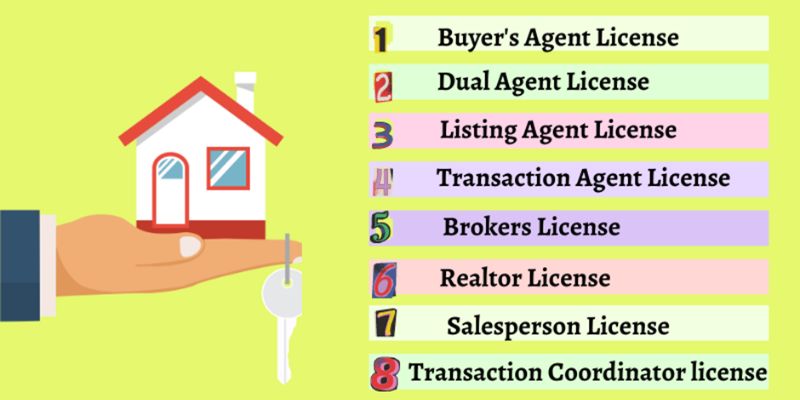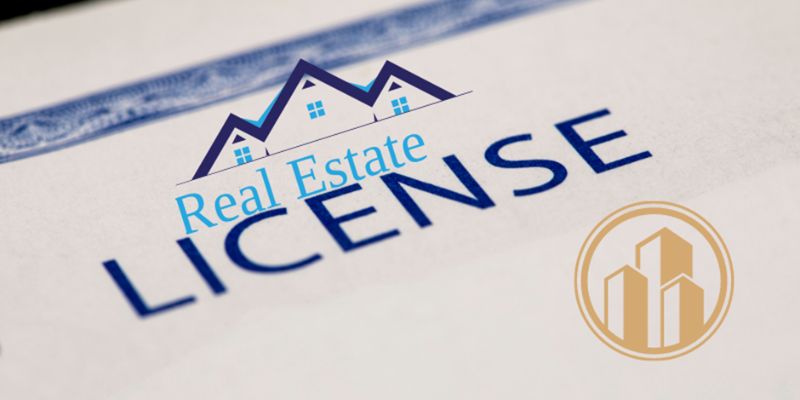Are you looking to embark on a career in the real estate industry? One of the first steps to consider is obtaining a real estate license.
In this blog, we will explore 8 types of real estate licenses to give you an understanding of the available licenses and their significance in the industry.
A real estate license is a professional credential that grants individuals the legal authority to engage in various real estate activities.
It serves as proof that you have met the requirements and possess the knowledge and skills needed to navigate the complexities of the real estate market.
Whether you aspire to become a real estate agent, broker, appraiser, property manager, or other related professional, obtaining the appropriate license is crucial for establishing credibility and ensuring compliance with industry regulations.
We encourage you to research and explore the various types of real estate licenses discussed in this blog. Each license has its requirements, educational prerequisites, and continuing education obligations.
By clearly understanding these licenses and their associated responsibilities, you can make an informed decision and pursue the license that aligns with your career aspirations.
So, let’s dive into the world of real estate licenses and discover the exciting opportunities that await you in this dynamic industry.
List of 8 Different Types of Real Estate Licenses
In the real estate industry, professionals can obtain various types of licenses based on their roles and responsibilities. Each license represents a specific specialization and legal authority in real estate transactions.
Understanding these different types of licenses is essential for individuals pursuing a career in real estate. Here is a list of 8 different types of real estate licenses:
- Buyer’s agent license
- Dual agent license
- Listing agent license
- Transaction agent license
- Brokers license
- Realtor license
- Salesperson license
- Transaction coordinator license
Obtaining the right real estate license is crucial for professionals to specialize in their desired roles and responsibilities, expand their career opportunities, and effectively serve clients in the dynamic real estate industry.
1. Buyer’s Agent License
A Buyer’s Agent License allows real estate professionals to represent buyers exclusively in real estate transactions.
As licensed buyer’s agents, individuals have the legal authority to assist and advocate for clients looking to purchase properties.
The license typically requires meeting specific educational requirements, passing a licensing exam, and complying with state regulations.
Holding a Buyer’s Agent License provides several benefits, including specializing in buyer representation, access to exclusive property listings, and building strong relationships with buyers.
2. Dual Agent License
A Dual Agent License allows real estate professionals to represent buyers and sellers in a single transaction.
Dual agents are responsible for facilitating a fair and unbiased transaction, ensuring the interests of both parties are protected.
The license requires thorough knowledge of real estate laws and regulations and exceptional communication and negotiation skills.
Holding a Dual Agent License provides the flexibility to work with a diverse range of clients and the potential to earn commissions from both sides of a transaction.
3. Listing Agent License
A Listing Agent License enables real estate professionals to represent sellers in listing and marketing their properties exclusively.
With this license, agents have the authority to conduct property valuations, create marketing strategies, and negotiate offers on behalf of their clients.
Obtaining a Listing Agent License typically involves meeting educational requirements, passing a licensing exam, and adhering to state regulations.
Holding a Listing Agent License offers the opportunity to specialize in working with sellers, market properties effectively, and secure successful client sales.
4. Transaction Agent License
A Transaction Agent License allows real estate professionals to facilitate real estate transactions without exclusively representing the buyer or seller.
Transaction agents act as intermediaries, assisting both parties in the transaction process while remaining neutral.
This license requires comprehensive knowledge of real estate laws and regulations and exceptional organizational and communication skills.
Holding a Transaction Agent License provides the flexibility to work with diverse clients and facilitate successful transactions.
5. Brokers License
A Broker’s License is a higher level of real estate licensure that enables individuals to operate their real estate brokerage firm.
Brokers have the authority to oversee and manage a team of real estate agents, handle complex transactions, and guide their agents.
Obtaining a Broker’s License involves:
- Meeting specific educational and experience requirements.
- Passing a broker licensing exam.
- Complying with state regulations.
Holding a Broker’s License opens up opportunities to establish a successful brokerage business, build a strong network of agents, and increase earning potential in the real estate industry. Enroll in our specialized broker licensing course today and take the first step towards becoming a licensed real estate broker!
6. Realtor License
A Realtor License signifies that a real estate professional is a National Association of Realtors (NAR) member and adheres to its strict code of ethics and professional standards.
To obtain a Realtor License, individuals must first obtain a real estate license and then join the NAR. Realtors have access to a wide range of resources, networking opportunities, and industry insights the association provides.
Holding a Realtor License demonstrates a commitment to ethical conduct, professionalism, and continuous education in the real estate profession.
7. Salesperson License
A Salesperson License is the most common entry-level license in the real estate industry. It allows individuals to work under the supervision of a licensed broker and engage in real estate sales activities.
To obtain a Salesperson License, individuals must meet educational requirements, pass a licensing exam, and comply with state regulations.
Holding a Salesperson License offers the opportunity to gain practical experience, learn from experienced brokers, and establish a foundation for a successful career in real estate.
8. Transaction Coordinator License
A Transaction Coordinator License allows individuals to specialize in managing and coordinating real estate transactions.
Transaction coordinators handle administrative tasks, ensure compliance with contract timelines, and facilitate smooth communication between buyers, sellers, agents, and other parties involved in a transaction.
The license requires thorough knowledge of real estate transaction processes, attention to detail, and excellent organizational skills.
Holding a Transaction Coordinator License provides the opportunity to support and streamline real estate transactions, ensuring a seamless experience for all parties involved.
Conclusion
Understanding the different types of real estate licenses and their respective roles is essential for individuals aspiring to build a successful career in the real estate industry.
To embark on a successful real estate journey, it is recommended to seek professional guidance and training programs offered by reputable institutions like ThinkProp.
Whether it’s becoming a buyer’s agent, a listing agent, a broker, or a transaction coordinator, each license offers its own benefits and opportunities for growth, which is one of the main reasons to study real estate.
Remember, obtaining a real estate license offers the benefit of establishing yourself as a trusted professional, providing valuable services to clients, and contributing to the growth and integrity of the real estate industry.
So, take the first step towards real estate for an exciting opportunity with lucrative salaries by exploring the licensing options available and embarking on a journey of continuous learning and professional development.
Seek the guidance and support of real estate training programs to maximize your chances of success in the real estate industry.












